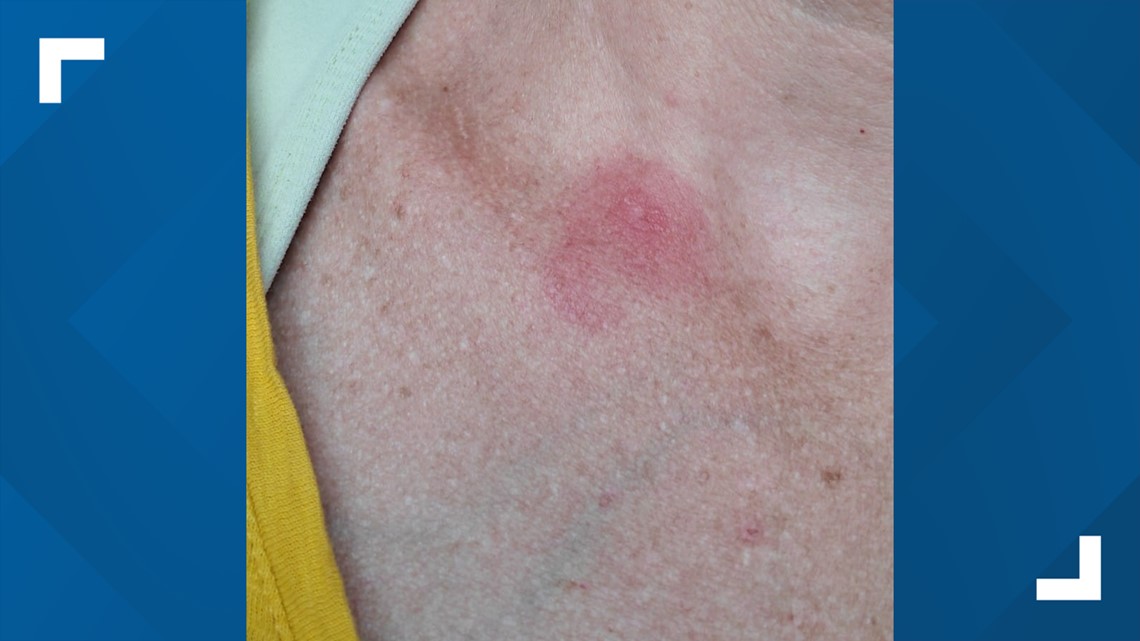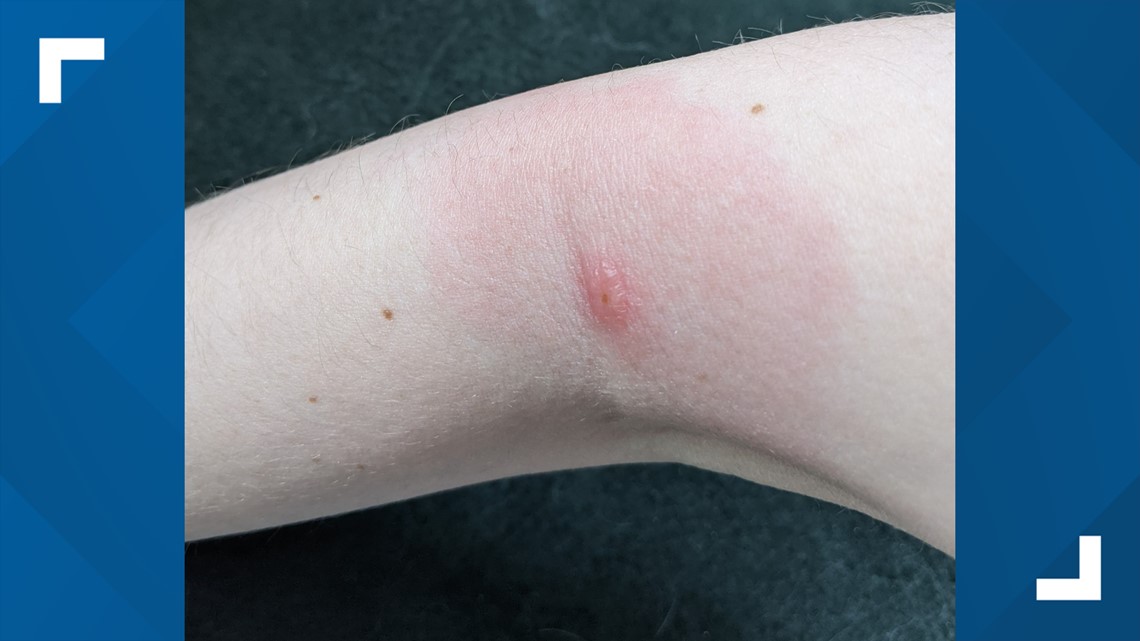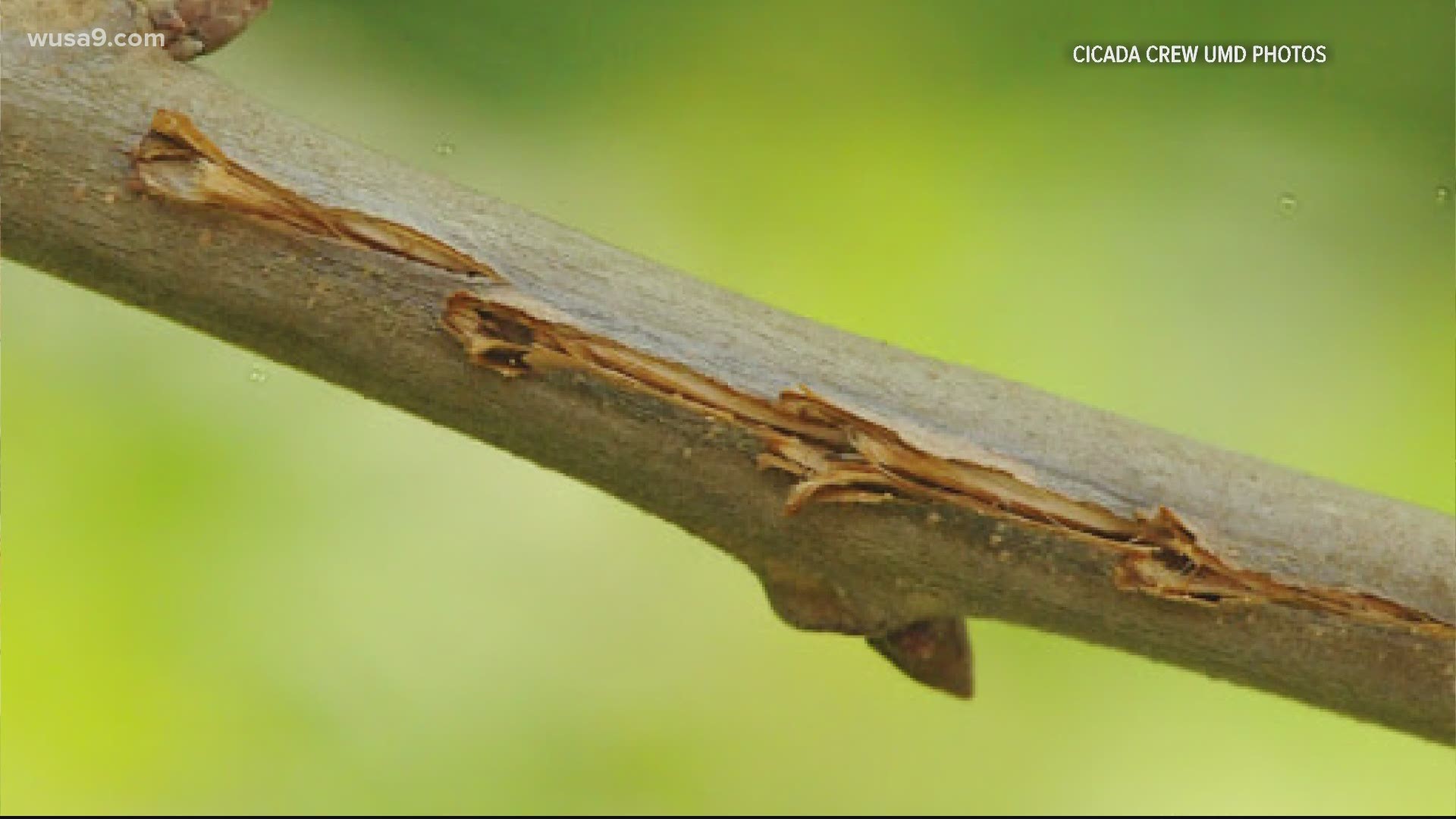ARLINGTON, Va. — Cicadas are long gone, but their eggs may have indirectly left us with just one more surprise in the form of annoying, itchy bug bites.
The mysterious bites first became a social media phenomenon on July 25 when a member of the Facebook group Arlington Neighbors Helping Each Other Through COVID-19 posted to the page asking fellow Arlington residents whether anyone else had been suffering from bug bites that are itchier and last longer than mosquito bites.
Since then, over 200 users have commented on the thread, with many sharing stories of urgent care visits to treat their irksome rashes. Now, the community has zeroed in on a prime suspect: the cicada-egg eating oak leaf itch mite known as pyemotes.
Local health officials say they are aware of the outbreak but have not been able to definitively confirm with WUSA that the uptick in these bites are directly related to the mites. However, a 2008 report from the website U.S. Pharmacists recorded a cicada cycle in Chicago to an outbreak of similar bites caused by these mites.
Cicadas lay their eggs in the branches of woody plants and trees, including oak trees, which provide a perfect feeding ground for the pyemotes that also start their lifecycles in these trees, according to the U.S. Pharmacists report. Eventually, the mites fall from the trees or a blown off by the wind and can land on humans, at which point they will burrow into the skin.


"[Pyemotes] must be very happy with their food supply at the moment," wrote Kurt Larrick, the assistant director of Arlington County's Department of Human Services, in an email.
However, entomologists like Dr. Raymond Cloyd of the University of Kansas want people to know that the mite theory is only a hypothesis. He said the mites fall from trees regardless if cicadas lay eggs in branches, and he added that the Chicago study did not explicitly conclude what the exact correlation was behind that year's cicada cycle and the bite outbreak.
"Mites are not really associated with cicadas, and this was probably some inadvertent phenomenon that happened to be well documented in 2007," Cloyd said.
On Facebook, residents in and around Arlington have warned others that these bites are more irritable than other bug bites.
"I am a mosquito magnet and usually swell up pretty badly, but I haven’t experienced anything close to this in years," commented one Facebook user.
Others on the thread seem to agree with the mite hypothesis after realizing the bites were not caused by other insects that cause similar reactions.
"This is exactly what my wife and I have been experiencing," wrote another user on the thread. "We thought we had bedbugs but the exterminator said there was no evidence of them."


According to U.S. Pharmacists, skin reactions from pyemotes typically appear 10 to 28 hours after the initial bite. Like mosquito bites, the skin surrounding the bite tends to swell into a raised bump, but a pyemote bite will last longer and be more uncomfortable.
The bites are not dangerous to humans, and swelling tends to go down after 10 to 14 days, according to U.S. Pharmacists. However, a secondary infection could arise from scratching or picking at the inflammation, and patients should consult doctors if they develop a fever, chills or increasing pain around the bite.
Patients should also consult a doctor if the bite develops a red ring around the initial rash, which is a sign of a Lyme disease-carrying tick bite.
Like other bug bites, swelling can be reduced through ice or topical antihistamines like Benadryl cream or Cortisone. You can also reduce the likelihood of being bitten by wearing long-sleeve clothing and bug repellant.
Sign up for the Get Up DC newsletter: Your forecast. Your commute. Your news.
Sign up for the Capitol Breach email newsletter, delivering the latest breaking news and a roundup of the investigation into the Capitol Riots on January 6, 2021.

